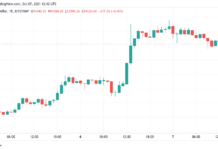The Shift Towards a Human-Centric Economy
In today’s rapidly evolving economic landscape, the traditional concept of currency is being reimagined. With the emergence of innovative technologies such as AI and blockchain, companies like Tulle are paving the way for a more human-centric economy. By focusing on personalized value exchanges, Tulle aims to reduce economic alienation and create a system that aligns more closely with individual needs and desires.
Throughout history, economists and philosophers have debated the role of money in society and its impact on human relationships. While Karl Marx’s economic theories may be controversial, his insights on the alienating nature of money are still relevant today. As Marx famously stated, “Money is the alienated essence of man’s labor and life; and this alien essence dominates him as he worships it.” This sentiment highlights the disconnect between individuals and the value of money, which can lead to societal imbalances and distortions.
The Challenges of Modern Currency Systems
Modern currency, often detached from tangible assets, can be susceptible to manipulation when controlled centrally. This centralized control of the money supply can result in economic distortions and power imbalances, as seen in the Cantillon effect. In response to these challenges, Bitcoin emerged as a decentralized alternative that aims to provide a more predictable economic environment through a known emission schedule.
While Bitcoin offers a solution to some of the issues associated with traditional currency systems, it may not fully address the problem of economic alienation identified by thinkers like Marx. This is where Tulle’s innovative approach comes into play, reimagining value exchange through a system that combines the efficiency of monetary transactions with the flexibility of asset exchange.
Tulle: Revolutionizing Value Exchange
Tulle’s asset-based payment infrastructure leverages AI and blockchain technology to create a personalized and efficient trading experience. Unlike traditional barter systems that lack scalability, Tulle’s approach enables complex transactions that cater to individual preferences and needs. By combining the benefits of monetary transactions with asset exchange, Tulle bridges the gap between traditional currency systems and barter economies.
To illustrate the effectiveness of Tulle’s system, consider a scenario where individuals have items they no longer want but desire other items in exchange. In a traditional market or barter system, these desires may go unfulfilled due to the lack of alignment in exchanges. However, Tulle facilitates mutually beneficial transactions by allowing users to trade assets while incorporating a minimal amount of currency to facilitate the exchange.
The Future of a Human-Centric Economy
Tulle’s vision extends beyond creating a new payment system; it aims to build an interconnected global ecosystem where transactions are tailored to individual needs. By integrating smart marketplaces into everyday life, Tulle seeks to make the exchange of goods and services effortless while optimizing the use of currency in transactions. This approach not only addresses economic alienation but also fosters a nuanced understanding of value based on individual preferences and needs.
As Tulle continues to innovate with features like smart auctions, pack-finding tools, and AI-discovered trades, the company is on the path to revolutionizing value exchange. The upcoming “Pay with Tulle” feature will further enhance individuals’ purchasing power by leveraging existing assets, reducing the reliance on traditional currency in transactions.
By creating a system that allows for direct asset trading while still utilizing currency as a facilitator, Tulle strikes a balance between efficiency and personalization in economic transactions. This human-centric approach aligns with the ideals of various economic thinkers and paves the way for a more inclusive and equitable economic system.














